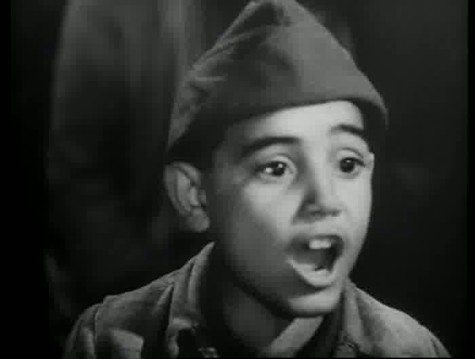Realização:
Roberto RosselliniCâmara:
Otello MartelliMúsica:
Renzo RosselliniElenco:
Carmela Sazio, Robert Van Loon, Maria Michi, Harriet Medin, Renzo Avanzo, William Tubbs, Gar Moore, Dots Johnson, Alfonsino Pasca, Giulietta Masina (mais)Streaming (1)
Conteúdos(1)
Paisà – Libertação é segundo filme da trilogia neo-realista de Rossellini. Dividido em seis episódios, o filme tem lugar durante a Segunda Guerra Mundial. No primeiro episódio, uma rapariga siciliana trava amizade com um soldado americano. No segundo, um napolitano rouba as botas a um soldado americano. No episódio seguinte, uma prostituta de Roma encontra um soldado que tinha conhecido no dia da Libertação e no quarto episódio uma enfermeira inglesa deambula por Florença à procura de um amor antigo. Um judeu e um protestante passam a noite num mosteiro no quinto episódio e no último episódio as tropas americanas são vítimas da ferocidade dos Nazis. (Leopardo Filmes)
(mais)Críticas (2)
I have a problem with many Italian neorealism films in that they are simply hard to digest for me. But Paisan is not one of them. It is an excellent war film in every aspect that speaks volumes about what war means to its participants and the civilian population. It is an anthology film with six separate stories that, understandably, do not have the same level, as is typical for anthology films, but all of them have a decent and meaningful point. Indeed, Roberto Rossellini is not skilled when it comes to war scenes, but that does not significantly harm the film because there is only one battle scene in the final story. It is chaotically edited and poorly shot, but in Paisan, the micro-stories that have nothing to do directly with the war turmoil are much more important. The individual episodes may seem random, but together they form an impressive whole that is authentic and tells of the atmosphere of a country permeated by the front line. The story set in the ancient monastery, which is visited by a trio of American field priests, and where a confrontation between Catholic thinking and American openness occurs, was impressive to me. For Italian monks, it is absolutely impossible to understand that a Catholic priest gets along well with a Protestant priest and a Jewish rabbi, and together they console soldiers. For all the stories, it is typical that concepts such as truth, love, justice, and bravery can be quite relative in heated situations. Rossellini does not moralize; he simply shows what he witnessed during the war. Overall impression: 90%.
()
Neorealism may not appeal to everyone, but it cannot be denied that there is power in what it portrays and how it portrays it. When the Americans cast a man who had actually lost his hands in the film "The Best Years of Our Lives", it was criticized. It is not surprising, as it appears to be pretense in Hollywood style. This is not a concern in neorealism. It relies on non-professional actors, which has a strong impact on the viewer's emotions. And here are the scenes that have this impact.
()

